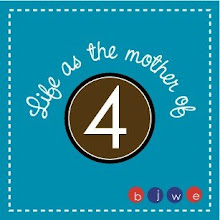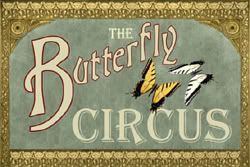Last Friday evening I turned on my computer, logged onto Facebook and saw my daughter’s status update. “I'm so pissed off right now. Some 7th grader made fun of my autistic brother. I want to punch him in the face so badly right now!"
In the almost fourteen years I’ve known her, I’ve never heard Brianne say something like that . . . this is the child who apologizes to ME when I’m upset. Her update, in a nutshell, explains why we need worldwide acceptance and tolerance for people with disabilities. It hurts people when we mock, exclude or devalue individuals with disabilities. And it doesn’t just hurt the individual. It hurts their friends, family and people who work with and for them. Society has made significant progress over the last two hundred years and perhaps that is why the gap that remains is so obvious.
Two recent events influenced this post: The first being the movement to end the use of the “R” word. The second is hearing about someone who said she was “having an autistic day;” which I can only assume is a replacement for the “R” word.
Several bloggers wrote posts publicizing the movement to “Spread the Word to End the Word.” I like the word retarded and I think it can be an appropriate description of cognitive abilities. Thus I didn’t pay much attention. But as I thought about it I realized that more often than the word is used appropriately, it is used to degrade and insult; much the same way I remember that people used the word “special” in high school, for example if they wanted to mock someone they would say: “she has a special spirit.”
I have a cousin with Down Syndrome and a child with special needs; I never would have dreamed of calling someone else retarded. But occasionally I would refer to myself as retarded when I did something spectacularly dumb. Once I worked myself past my defensiveness I realized that I wasn’t as far removed from high school students as I want to be. As much as I choose to see “my” use of the word differently -- it really wasn’t.
Why did I start using it and continue saying it when I knew better? Perhaps because I heard it a lot and exposure to anything lessens its shock value. I didn’t think about its use as much as I should have because it is acceptable, to some extent, in our society to use derogatory terms to describe people with special needs and other differences.
I’ve stopped using retarded inappropriately and even gently said something to someone who used it in front of me. But I don’t think that eliminating one word from our vocabulary solves the overlying issue, which is societal acceptance of derogatory comments directed towards individuals with special needs. If we eliminate the “R” word some people will use whatever replacement word is chosen as a slur.
Our society has been moving along a path of greater acceptance for diversity and special needs. By inviting, including and valuing people with special needs to participate in society we are contributing to our progression.
For now I not sure if retarded should be discarded from common use. But I have stopped using it in a derogatory way and I will speak to others who continue to do so. And hopefully that will be more effective than simply ending its use would be.







3 comments:
I want you to know that I enjoy reading your blog and getting to know you better and seeing the areas of commonality we share. :-)
“It is not our differences that divide us. It is our inability to recognize, accept, and celebrate those differences.” Audre Lorde
I've thought a lot about the divide between cure and neurodiversity advocates. Honestly I didn't realize it was so big up until a year ago. I thinks it's an artificial divide and hurts more than it possibly helps.
Thanks for your kind words. I do read CAofA on google reader so I keep track of what you are writing as well.
I thought it had eaten my first response. ;-) Ah well, it's always nice to hear you're appreciated twice, right?
You're right; the cure and the neurodiverse divide is artificial; part of it's semantics, part of it's approach, and there's some interplay of personality factors, too, no doubt.
I think we show, the two of us (and others like us) that if you listen, really listen, you can find where the agreements are and build on that.
I mean, who's not for making our children as happy and functional as possible? Once you realize you're using different words for much the same thing, then you can relax and work together, focusing on the bigger picture, making the world a better place for our children and all those who suffer because of society's lack of acceptance.
I love that the capture for this is "presto." I wish it were that easy. :-)
Post a Comment